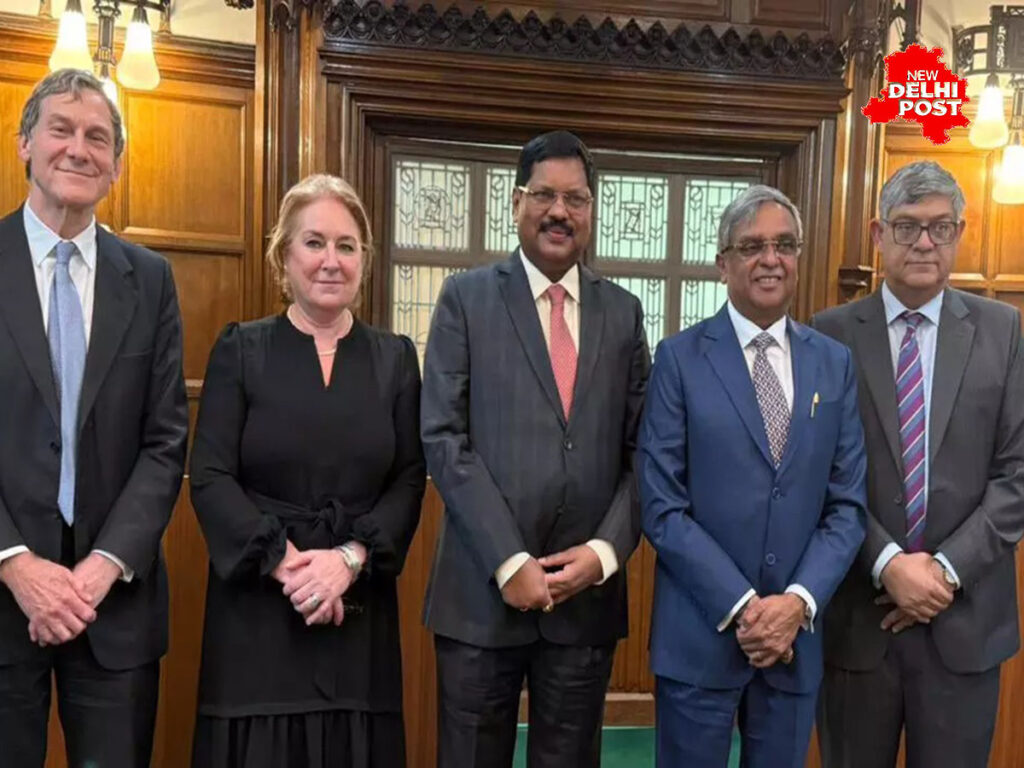Chief Justice of India BR Gavai highlighted ethical concerns over judges accepting government office or contesting elections soon after retirement, stressing the need for judicial independence to maintain public confidence.
LONDON: Chief Justice of India BR Gavai expressed grave concerns over judges taking up government appointments or entering politics soon after retirement, saying such actions erode public confidence in the judiciary. Speaking at a roundtable discussion at the Supreme Court of the United Kingdom, he emphasised the importance of judicial independence and transparency in maintaining the credibility of the judiciary.
Ethical concerns over post-retirement roles
CJI Gavai said judges accepting government office or contesting elections soon after retirement raises ethical questions. “Such engagements may create the impression that judicial decisions were influenced by the prospects of future political or government roles,” he said. To preserve judicial integrity, he and several of his colleagues have pledged not to accept government roles after retirement. This commitment, he said, is aimed at reinforcing public confidence in the impartiality of the judiciary.
Judicial Independence and Collegium System
Highlighting the collegium system for judicial appointments, CJI Gavai acknowledged its criticisms, but cautioned against reforms that compromise judicial independence. “Any solution must ensure that judges remain free from external control,” he said. He also emphasised the role of the judiciary as a balance to arbitrary power, and its independent power of judicial review as crucial to public confidence. A study conducted by the Vidhi Centre for Legal Policy in 2023 reiterated this point, stating that 70% of Indians consider judicial independence crucial to democratic trust.
Transparency measures to boost confidence
CJI Gavai outlined transparency initiatives, such as declaration of assets by judges on a dedicated Supreme Court portal and livestreaming of court proceedings. However, he cautioned against misreporting, citing an instance where a judge’s light-hearted remark was misrepresented in the media. “Reporting out of context can distort public perception,” he warned. He also highlighted efforts to make justice accessible, including virtual hearings, translation of judgments into regional languages, and public access to case disposal data through the National Judicial Data Grid.
Addressing judicial misconduct
Acknowledging rare instances of judicial misconduct, CJI Gavai said the Supreme Court acts swiftly to address such issues. “Transparency and decisive action are the keys to rebuilding trust,” he said. Former Supreme Court judge Justice Kurian Joseph in a 2024 interview endorsed this view, urging strict oversight to maintain judicial accountability without undermining independence.
Global context and judicial legitimacy
The discussion, attended by Justice Vikram Nath, Baroness Kerr (female Chief Justice of England and Wales) and Lord Leggatt, underscored the universal challenges in maintaining judicial legitimacy. CJI Gavai concluded that public trust is earned through credibility, not through pressure. “In the digital age, the judiciary must be accessible and accountable without compromising its independence,” he said. A 2024 global survey by the World Justice Project found that 62% of respondents worldwide preferred judicial impartiality to institutional trust.


